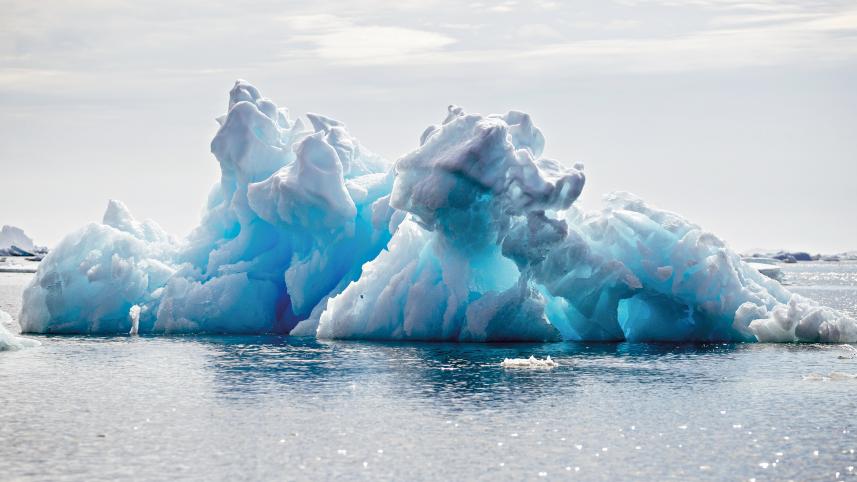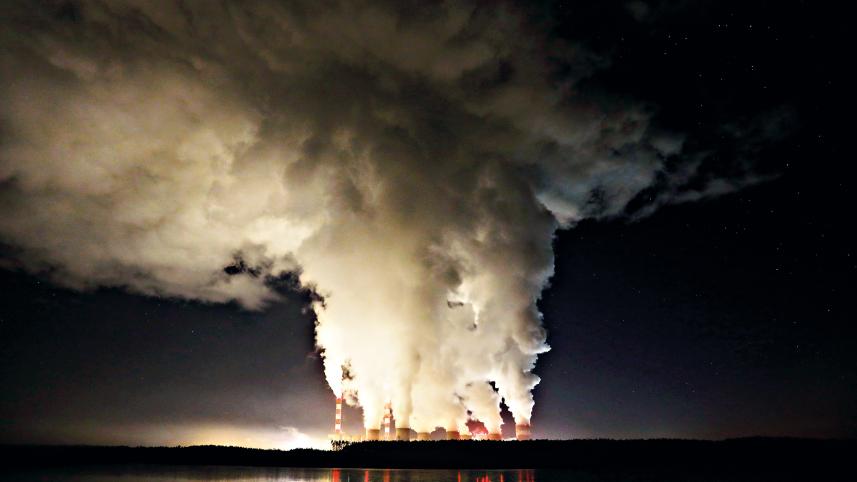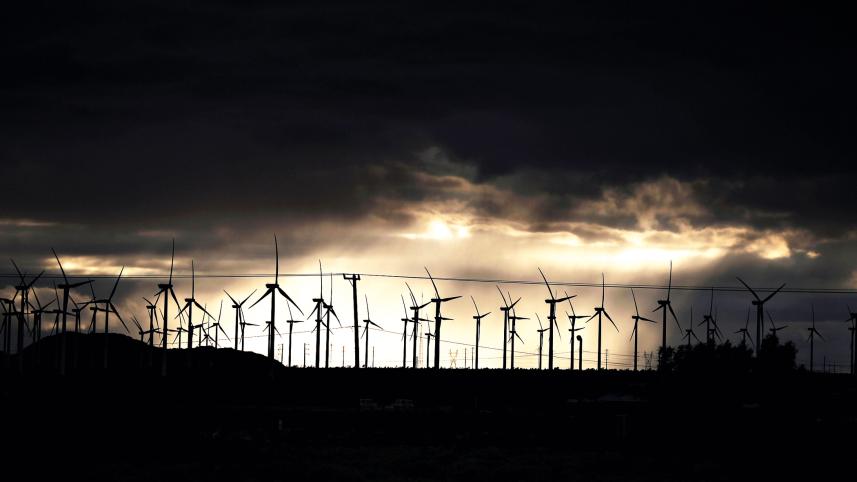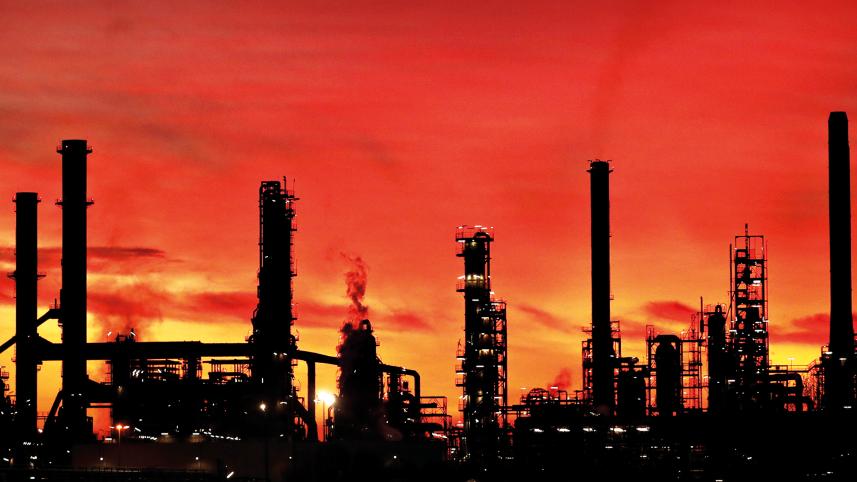Promises remain promises

Catastrophic floods, crop-wilting droughts and record heatwaves this year have shown that climate change warnings are increasingly becoming reality and this is "just the beginning", experts say, as international efforts to cut planet-heating emissions flounder.
2022 did see some important progress, with major new legislation particularly in the United States and Europe as well as a deal at UN talks to help vulnerable countries cope with an increasing onslaught of devastating climate impacts.

But the goal of keeping warming within a safer limit of 1.5 degrees Celsius since the pre-industrial era appears in peril, with carbon dioxide emissions from fossil fuels -- the main driver of global heating -- on track to reach an all-time high in 2022.
United Nations chief Antonio Guterres warned world leaders at a climate summit in Egypt in November that humanity faces a stark choice between working together in the battle against global warming or "collective suicide".
They opted to put off the most important decisions for another time, observers say.
At 2021 UN talks in Glasgow, nations were urged to ramp up their emissions reduction commitments.
According to the independent Climate Action Tracker, as of early November, 2022, only 21 countries have submitted updated national climate commitments — and not even all those newer plans contain more ambitious goals. Meanwhile, another 172 countries have not updated their targets, the group said.
Only one large country so far has filed a plan that includes stronger, credible emissions-cutting commitments: Australia.
AFP in late December said only around 30 countries have updated national climate commitments, leaving the world on track to heat up by about 2.5C.
And yet, another year has passed with few signs of the transformational changes needed to bend the world's current trajectory toward a more sustainable future.
Not only are existing pledges not bold enough to put humanity on track to hit the most lofty goals of the Paris climate accord, but current policies in place in many countries also remain inconsistent with their public pledges to do more.

In short, the momentum that emerged at last fall's summit in Scotland has stalled, as other crises such as the war in Ukraine and rising inflation and energy costs have demanded the attention of world leaders.
"Disappointing," is how Claire Fyson, co-head of the climate policy team at the nonprofit research group Climate Analytics, describes the lackluster reality. "Few governments have really done anything to substantially move the dial."
Guterres decried the failure of the climate talks to address the drastic emissions cuts needed, adding: "Our planet is still in the emergency room."

This year UN climate science experts issued their strongest warning yet of the dangers facing people and planet, with a landmark report on climate impacts in February dubbed an "atlas of human suffering".
Since then a series of extreme events has illustrated the accelerating dangers of climate change, at barely 1.2C of warming.
Record heatwaves damaged crops from China to Europe, while drought has brought millions to the point of starvation in the Horn of Africa.
Floods super-charged by climate change engulfed Pakistan, affecting 33 million people and causing some $30 billion in damage and economic losses.

"The year 2022 will be one of the hottest years on earth, with all the phenomena that go with higher temperatures," said climate scientist Robert Vautard, head of France's Pierre-Simon Laplace Institute.
"Unfortunately, this is just the beginning."
This year is on track to be the fifth or sixth warmest ever recorded despite the impact, since 2020, of La Nina -- a periodic and naturally occurring phenomenon in the Pacific that cools the atmosphere.
When this phenomenon reverses, potentially within months, the world will likely climb to a "new level" in warming, said Vautard.
Economy-battering climate extremes, which amplified the energy price surge for many countries as a result of Russia's invasion of Ukraine, provided the backdrop to last month's high-stakes UN climate talks in Egypt.
The negotiations did make history, with wealthy polluters agreeing to a fund to pay for climate damage increasingly unleashed on poorer countries.

But vulnerable nations and campaigners said the conference failed to deliver on the emissions reductions needed to curb climate losses and damages in the future.
"COP27 tackled the consequences of climate change, but not the cause -- fossil fuels," said Harjeet Singh of Climate Action Network.
To keep the 1.5C limit in play, planet-heating emissions need to be slashed 45 percent by 2030, and be cut to net zero by mid-century.
Moreover, the Ukraine could prompt the European Union to accelerate its transition toward renewables and away from the fossil fuel-producing countries it has long relied upon for energy.
In a report last week, the Paris-based International Energy Agency found that the invasion, in part, could lead global demand for fossil fuels to peak beginning later this decade.
A crunch meeting in Montreal in December aimed to address another existential crisis facing the planet -- biodiversity loss -- as human activity gravely damages nature.

Nations agreed on a roadmap to reverse decades of environmental destruction threatening species and the land and ocean ecosystems that provide Earth's life support.
Guterres hailed the deal as a "peace pact with nature", but some environmentalists warned the plan did not go far enough.
And promises by big companies remained promises forcing the UN's chief to call them to end their "toxic cover-up".
A huge surge in decarbonisation pledges in recent months means that around 90 percent of the global economy is now covered by some sort of promise of carbon neutrality, according to Net Zero Tracker.
According to BloombergNEF's New Energy Outlook, world must spend almost $200 trillion to achieve net zero by 2050 – most of it private capital – and yet across the sector, there is a lack of transparency and mixed messages on how committed firms are to meeting the target.
Climate finance NGO Carbon Tracker analysed 134 multinational companies, responsible for up to 80% of corporate industrial greenhouse gas emissions. Although they are all subject to engagement from Climate Action 100+ (CA100+), the investor-led initiative launched in 2017 to hold the biggest greenhouse gas emitters' feet to the fire, 98% did not provide sufficient evidence that their financial statements include the impacts to their business from climate change.
"Using bogus 'net-zero' pledges to cover up massive fossil fuel expansion is reprehensible. It is rank deception," he said at the launch of the report at the COP27 conference in Egypt.
"This toxic cover-up could push our world over the climate cliff. The sham must end."
Progress has been too slow – in areas ranging from climate to biodiversity to deforestation – and there is a recognition that it will be extremely difficult to transform the system thanks to systemic inertia, political hostility and a bias towards incumbent providers.
"It's very easy to make an announcement that you are going to be net zero by 2050. But you have to walk the talk and what we've seen is that there is not enough action," said Catherine McKenna, Canada's former environment and climate change minister, who led the panel.
A series of potentially crucial climate milestones will stretch through next year.

These will include spring meetings of the International Monetary Fund and World Bank, following "a formal request to look at the international financial system and to review the role of international financial institutions" from the Egypt climate talks, said Laurence Tubiana, who leads the European Climate Foundation.
The next UN climate meeting in November 2023 -- held in fossil fuel exporter the United Arab Emirates -- will see the publication of a "global stocktake" of progress on the 2015 Paris Agreement goal to limit warming to well below 2C, and preferably 1.5C.
Tubiana, a key architect of the Paris deal, said the talks in Dubai will likely be dominated by discussion of the oil and gas industry and its financial contribution.
The issue is likely to create "great tension", she predicted.



 For all latest news, follow The Daily Star's Google News channel.
For all latest news, follow The Daily Star's Google News channel.
Comments